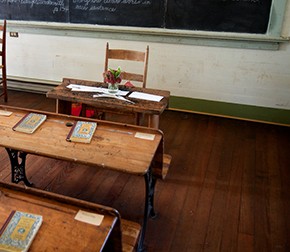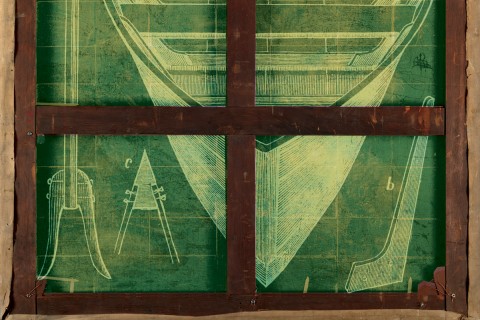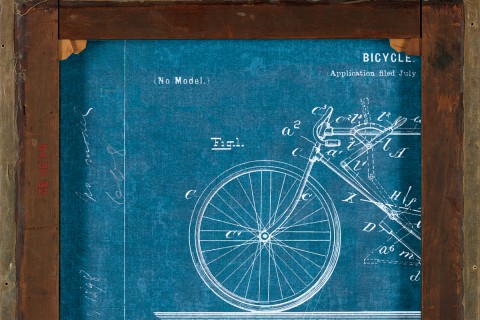Seating chart
In the first seat in the first row at St. John’s there was a girl named Colleen who was the smartest kid in the class and always got the best grades and never punted a test even once. One time she got a 94 instead of 100, and she burst into tears right there in class. She was scrawny and did not talk much and had pimples, and her dad had cheated people and gone to jail. Her mother came to pick her up every day in a car that smoked and groaned.
Her little brother was in first grade, and one time a second-grader teased him on the playground, saying his father was a jailbird, and the brother broke the bigger kid’s nose. You would be surprised how much blood there was. There was blood all over, and the bigger boy cried so hard that other kids nearby began to cry also. Our teacher dragged him to the school nurse.
I remember that was the week we played St. Mary Star of the Sea and lost by only 12 points. Our coach said this was a moral victory. A moral victory is when you lose by 20 points or less.
In the second row first seat there was a boy named Mike who was Italian and did not speak much either because he had an accent. His father was so short that some of the kids in our class were taller than he was. Mike’s father was one of the four men who brought the collection baskets around in church, and he was so short that when he extended the basket down a pew with its long handle you couldn’t see him, so it looked like the basket had appeared magically by itself in the air—which was totally possible because the world was filled with miracles.
That is what our faith is all about, said our teacher. There are miracles everywhere and you must train your eyes to see them. Each and every one of you is a miracle if only you had the eyes to see. You can see miracles more clearly if your heart is pure. Our faith is like a set of spectacles with which to see better. If your vision was terrible, and you had the chance to wear glasses to see better, would you refuse to wear glasses? No, of course not. And yet there are people who refuse this divine gift. We must pray that their hearts are opened and the beams of timber are lifted from their eyes.
In the third row first seat there was a girl named Marisa. She was very fat. She later became an actress in a terrible movie that you could see only on television once a year late at night before the screen went to mush and the television station played “America the Beautiful.” I think it may have won an award as the worst movie of all time, but Marisa was good in it.
Her part was to be a waitress handing a man a cup of coffee. She didn’t spill a single drop of that coffee. She was on screen for four whole seconds, but for those four seconds you totally believed she was a waitress in a diner in New York serving coffee to a detective rather than the girl who used to be fat in the third row first seat. She was so believable that you suddenly wanted a cup of coffee even if you didn’t drink coffee and couldn’t stand the taste of it and could not conceive what lunatic in ancient times decided to roast beans from a bush and call it delicious.
In the fourth row first seat there was a girl named Patricia. She was the first girl to have breasts of all the girls in our class. One week she was like the other girls and the next week she had breasts. At the end of the first week she had breasts our teacher asked her to stay after class, and the next week Patricia wore a sweater over her shirt. Sometimes she would take her sweater off on the playground when she and the other girls were running and we would stop playing basketball for a while, and when she put her sweater back on the game would resume.
The first week Patricia had breasts was the week we beat both St. Barnabas and St. William the Abbot, neither of which we had beaten since the dawn of recorded time, and St. William the Abbot had a terrific center who later went on to play college ball.
In the fifth and final row first seat there was a slight boy named Matthew who had behavioral problems. He could not sit still under any circumstances whatsoever, and he muttered and talked to himself and laughed at inopportune times. Supposedly his mother cut his hair with a hunting knife. His house was filled with brothers and dogs and drugs. If you went to his house to do a science project you had to watch out for dog poop on the floor and on the stairs and even in his room. Even when he was talking to you his eyes went sideways, so people who had never talked to him were always looking sideways to see what he was looking at.
He used to sit in the back of the room with the other cool kids, but our teacher finally assigned him his seat fifth row first seat for the rest of the year no matter what, and if he sat anywhere else she would stop teaching and point to his seat, and he would shuffle up the row touching people’s hair and talking to himself. He never wore socks even in winter and sometimes he would wear shoes that did not match. Sometimes he signed his papers with names other than his own and sometimes when we were on the playground he made us call him Timmy or Jimmy.
One time he bit another kid on the playground and our teacher came to take him to the principal. He held back, crying, and suddenly our teacher began to cry also. They stood there looking at each other and crying and crying. We all stood around silently and no one moved, and finally our teacher reached out and put her hand on his head as gently as you would touch a broken bird. Then she turned and walked away without bringing him to the principal at all.
I remember that was the week we lost to St. Agnes, which was no surprise, as we had lost to St. Agnes every year since Jesus was a child in Judea long ago.






